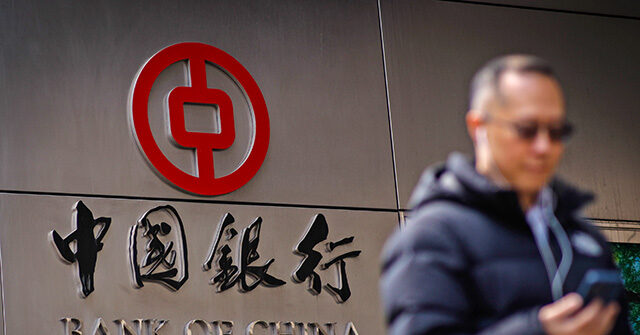The Chinese Communist Party’s tepid relationship with consumer stimulus is heating up again. Only two weeks after the Politburo signaled it would make no further efforts to stimulate weak consumer demand, the national government announced it would offer subsidized personal loans to prod consumers into spending more money.
The new loan program is a co-production of the Chinese Ministry of Finance, the National Financial Regulatory Administration, and the People’s Bank of China (PBC).
The loans, which will have low interest rates financed by government subsidies, are meant to cover major purchases such as automobiles, education, home furnishings, and health care. The central government will cover 90 percent of the subsidies, while provincial agencies will be expected to pay the other ten percent.
The subsidized loan program will begin in September and is scheduled to last until August 2026, although it could be extended beyond that date. About two dozen banks and consumer loan providers will be initially authorized to receive the loan subsidies.
“The Chinese government has been focusing on promoting nationwide consumption this year. Aside from continuing the consumer goods trade-in program that started in 2024,” the state-run Xinhua News Agency reported. “China made public a plan involving special initiatives to increase consumption, which aims to vigorously boost consumption, stimulate domestic demand across the board, and increase spending power by raising earnings and reducing financial burdens.”
Foreign news services were less inclined to accept the Chinese Communist Party’s spin that the Chinese economy is fundamentally healthy and needs only a little jolt of extra consumer spending to achieve perfection.
Bloomberg News pointed out that China has “struggled to boost consumer spending” for a long time – at least since the real-estate crisis and coronavirus pandemic made Chinese consumers nervous about spending money. Current efforts to replace lost trade to the United States with increased domestic purchases do not appear to be going well.
“While prodded to increase lending, banks have strained to dole out loans as consumer confidence has remained subdued. Lenders have also been hampered by deteriorating credit quality and record low margins,” Bloomberg noted.
Even as they seek to make more money available to prime the consumer-spending pump, Chinese policymakers are nervous about convincing their subjects to borrow too much money. The new loan subsidies have strict caps on how much money can be borrowed at low interest rates, and the program is being advertised with a fixed ending date, which might help encourage consumers to borrow what they need without going overboard.
The loans could also be taken as a show of government confidence for industries like automobiles and home furnishings, potentially increasing production and investment to catch the wave of subsidized loan money.
“Consumer loans will have only a limited impact on overall consumption in the short term, but the signaling effect is clear, as the subsidized areas are all sectors currently receiving strong policy support and encouragement,” GF Securities analyst Zhong Linnan said Tuesday.
“Unlike previous policies that required banks to offer cheaper loans, the government will shoulder the subsidy costs, showing regulators attach great significance to pressure on banks’ profit margins,” Huatai Securities analysts said in a report quoted by Reuters on Wednesday.
Read the full article here


